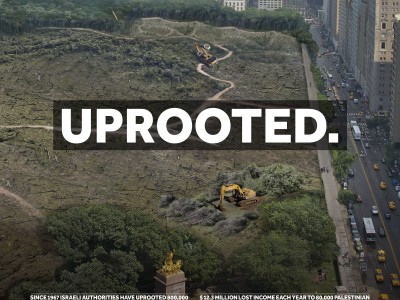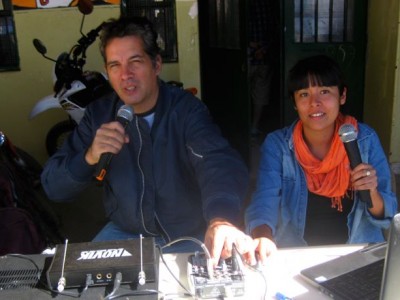Rising Voices note: This is a part of a series of posts highlighting projects of the participants from the “Conectándonos” gatherings organized by RV in Bolivia, Peru, and Ecuador in 2011-2013. The aims of these workshops were to help develop new leaders within underrepresented communities online, and to strengthen networks and exchanges among young people that use digital media for social change.

Radioteca, a free and open home for audio, opened its doors six years ago so that anyone, including local radio stations, amateur podcasters, and community organizations could upload their content for free. The site is administered by the Quito-based Ecuatorian organization Radialistas [es] – Apasionadas y Apasionados along with Código Sur [es].
As stated on earlier post on Rising Voices:
Currently, there are approximately 6,300 registered users, who have already uploaded more than 20,000 pieces of audio to the platform. On the site, one can find content organized by categories including human rights, gender and sexuality, health, and culture, among others.
They have recently launched a set of online tutorials about a variety of topics, including radio production, technical support and free resources, to help journalists, radio producers, citizen journalists, and anyone with an interest in radio and open software, to spread information about their communities.
There is a virtual course about radio and free software [es], with downloadable tutorials about operating systems, audio editors, freely available technologies for producing online radio, and a listing of Creative Commons-licensed theme musics and effects. Or, users can download the entire manual from a pdf file.
Through Radioteca, Radialistas also provides a freely available platform to host audio content, meaning that any user can store their files on the Radialista website. These files are then publicly available to be freely downloaded and disseminated – as long as the information is credited.
There is also a comment section where users can receive feedback from each other and the site administrators, and exchange opinions about their experience.
We had the chance to talk to Clara Robayo, community manager of Radialistas about the project.
How and why was this project founded?
The project started twelve years ago. The radio stations didn't have production [capabilities] and we needed supplies. So, at first the texts were submitted, because there weren't any resources to make the recordings. In 2004 the first audios were submitted.
The first suscribers’ register had 200 radio stations, and today we have more than 21,000.
What has been your personal experience, and was your motivation to join the project?
I began working here two years ago. I'd known Radialistas because it had a radio program and the audios were aired there. They were very popular. I started with my college thesis about radio language for the Internet, studying audios from Radialistas. Little by little I became more involved with the process and I ended up working here.
Besides the radio show I had, I worked at the radio of my university and at an Internet radio. I always tried to highlight the radio shows and stories, because little by little they have been disappearing.
Who are the main users of Radialistas?
Our users are community radios, journalists and general public interested in the topics we address. We have 6,000 audio downloads daily. We are surprised with how people use that material, for they are not only used by radio stations. We receive messages from France, United States and even China where user tell us they use the material to learn Spanish. There are others who tell us they use it for lectures and speeches. Some professors use it for their lessons. And some others for theater.
Any special stories to share from your time with Radialistas?
Some people visit the [Radialistas] sexual consultancy. They even think doctor Miralles [a virtual character] is real. We've received many letters where people say they want to meet her, or ask for an appointment with her.
On my radio program, some listeners called me to ask to talk to her using our internal line. I got tired of telling people that doctor Miralles was not real, until I decided to play along and just tell them she was already gone.
You can stay in touch and follow Radialistas on Facebook and Twitter @radialistasnet.




1 comment